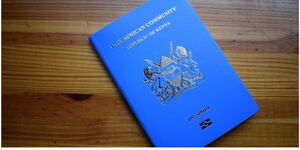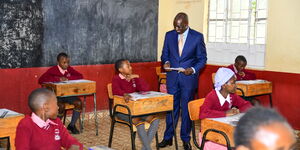While studying architecture at the Jomo Kenyatta University of Agiculture and Technology (JKUAT), Edward Kirathe took on his first job as a poorly paid debt collector for a credit company, in a bid to raise money for expenses.
Since then, Kirathe has grown into a massively successful entrepreneur behind Acorn Group, a real estate firm behind purpose-built, branded hostels targeting university students in Nairobi.
Acorn is behind the Qwetu chain of hostels that has proved popular with students studying around Jogoo Road, Parklands and Ruaraka. The hostels come with unique features to attract students including wi-fi, gyms and common rooms with gaming equipment.
Kirathe, the company's chief executive, is the single-largest individual shareholder with a 30.24% stake in the venture. The company achieved a major milestone on Wednesday, February 26, when London-based private equity firm Helios confirmed committing $100 million (Ksh10 billion) to support the firm's growth.
“Helios has committed $100 million (Sh10 billion) to Acorn to provide the equity funding necessary to support the substantial development programme,” the investment firm noted in an information memorandum on the issuance of a green bond approved on August 5, 2019, by the Capital Markets Authority (CMA).
The green bond, Kenya's first, saw Acorn raise Ksh4.3 billion to build environmentally-friendly student accommodation. Green bonds are fixed-income securities that raise capital for projects deemed to have positive environmental and climate benefits.
Speaking at the time, Kirathe expressed pride in the firm's pioneering of the green bond in the country.
“The bond was raised from a diverse mix of market players include pension fund managers, commercial banks, insurance and international development finance institutions,” he told reporters during the closing of the bond issuance.
The partnership between Acorn and Helios is meant to facilitate the construction of 3,800 university hostel units in Nairobi at a cost of about Ksh7.4 billion.
The firm plans on building the new units to serve students from Strathmore University, the United States International University (USIU) and Catholic University.
Acorn cut a niche for itself with its student hostels as a market gap existed for high-quality accommodation targeting students despite their increasing numbers.
In a past interview with How We Made it in Africa, Kirathe noted that entrepreneurship was not for everyone, arguing it required discipline and focus.
"Not everybody has the mindset to become an entrepreneur. That is not an arrogant statement; that is the reality. Do we now all try to become athletes because we have good runners in Kenya? If we became a nation of 40 million athletes, who will do the rest of the stuff that needs to be done?
"First, you have to know that you have what it takes to be an entrepreneur. We can’t become a continent of a billion entrepreneurs. You must have the passion and the will to go on when everyone else advises you to quit. Those who feel they have what it takes have got to be very disciplined and focused," he stated.
The entrepreneur additionally cited crime and corruption as the main challenges faced by business owners in Kenya.
He revealed in the same interview that he had been mentored by other entrepreneurs including city tycoon Chris Kirubi.
"My first boss was my first formal business mentor. I learned a lot about the industry and how it works from him.
"Over the years, I have learned from people much older than I am, people like Chris Kirubi who is a good friend of mine. There are a lot of other almost father figures who have taught me a lot about business," he stated.












